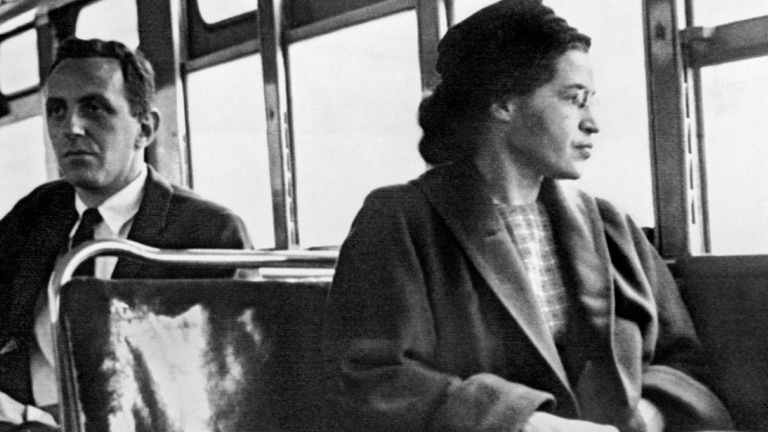The potential for civil disobedience suddenly evaporated throughout the South, and sentiment turned violently opposed to integration on both sides. Efforts toward desegregation, by people such as Jackie Robinson and his famed court-martial when refusing to enter a military bus by the back door, suddenly evaporated. Rumored to be caused by threats and negative public opinion, the case of Browder v. Gayle upheld segregation law.
While the South erupted in violence for years to come, the North would see a new campaign arise from the Nation of Islam. Under the leadership of Elijah Muhammad and Malcolm X, the Nation drew great attention to the older notion of the Back-to-Africa movement. Segregation seemed unbeatable; now was the time to make the separation geographical as well as legal. As conditions grew unbearable, political connections began to grow in Washington under the Kennedy administration. Part of later president LBJ's Great Society called for federal funding in grants for the reopening of colonization in Liberia. Over the course of the 1960s and '70s, hundreds of thousands of African Americans would cross the Atlantic back to their once-native continent.
Political relations with the growing Liberia among the US remained strained. American Marines were able to help halt an attempted coup in 1980, and the two both condemned Communism (though for differing reasons), but Liberia continued to call for the equivocation of rights among non-white Americans that frustrated diplomats. With the end of apartheid in South Africa in the 1990s, the world community turned to the United States in anticipation of similar actions. While some concessions have been made, Separate but Equal continued to maintain rule. As the new millennium began and increasing numbers of Hispanic Americans expand the minority into another voting bloc, advocates hope that another chance at equality may come soon, but only if alliances among white and non-white activist groups can be made.
–
In reality, the Rosa Parks bus incident began quietly. Blake did not trip, but he did call the police. Parks' arrest served as a great symbol for the growing campaign to end segregation, seemingly better suited than the arrest of Claudette Colvin in a similar incident a few months earlier. With Parks as a symbol and Colvin's case victorious in federal court, the road to equality began to open by means of civil disobedience.

in Rosa Parks slips through the net set in a dystopian world where Nazidom won out, we imagine RP as a latter day Harriet Tubman, a freedom fighter operating a re-activated Underground Railroad.
ReplyDeleteWe revisit the ideas in this timeline in our article FBI outs Michael King.
ReplyDelete